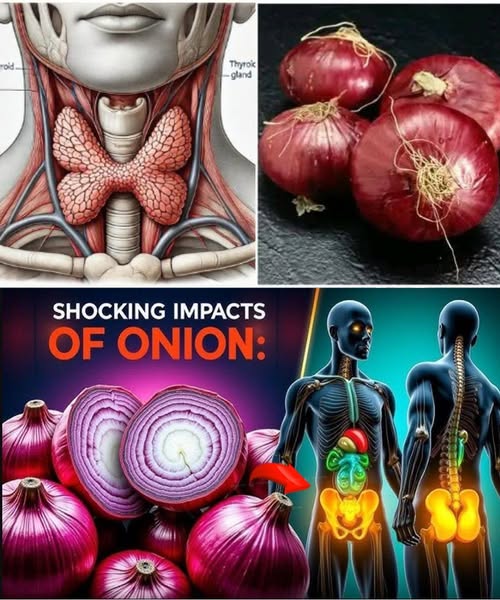Introduction: Unlock the Untapped Power of Onions

When you think of onions, you probably imagine the humble kitchen staple sizzling in a hot pan, adding flavor to your favorite dishes. But did you know this everyday vegetable is a nutritional powerhouse with exceptional health benefits?
Onions are far more than a flavor enhancer—they’re an ancient medicinal remedy and modern superfood rolled into one. From fighting inflammation to boosting heart health and even potentially reducing cancer risks, onions deserve a spot at the top of your wellness strategy.
This article is your ultimate guide to the surprising health benefits of onions. We’ll uncover 13 powerful reasons to eat more onions, answer frequently asked questions, and explain why you should never limit their potential in your kitchen.
Get ready to rethink everything you know about onions—and take charge of your health in a fresh, flavorful way.
Body
1. Packed with Nutrients but Low in Calories
Onions offer an impressive nutritional profile while remaining calorie-light. A medium onion contains:
- About 44 calories
- 1.2 grams of protein
- 10 grams of carbs
- Almost no fat
But it’s the micronutrients that truly shine:
- Vitamin C: Essential for immunity and skin health
- Vitamin B6: Supports metabolism and brain function
- Folate: Vital for cell growth
- Potassium: Crucial for heart health
Takeaway: Onions deliver big on nutrition without expanding your waistline—a perfect addition to any diet plan.
2. Rich in Antioxidants
Did you know onions contain over 25 different flavonoid antioxidants?
These antioxidants fight free radicals in your body, reducing oxidative stress and lowering the risk of chronic diseases.
One standout compound is quercetin, known for its anti-inflammatory, antiviral, and anticancer properties.
Stat Alert: Studies show quercetin may reduce blood pressure and improve heart health in people with hypertension.
3. Powerful Anti-Inflammatory Properties
Inflammation is at the root of many chronic illnesses—from arthritis to heart disease. Onions contain compounds that combat inflammation naturally.
- Quercetin inhibits inflammatory enzymes
- Sulfur compounds support detoxification and reduce swelling
Why it matters: Incorporating onions into your meals can offer a natural defense against chronic inflammation.
4. Heart Health Hero
Onions support cardiovascular health in multiple ways:
✅ Lower blood pressure
✅ Reduce cholesterol levels
✅ Prevent blood clot formation
Evidence: Research published in the American Journal of Clinical Nutrition suggests regular onion consumption is associated with reduced risk of coronary heart disease.
Pro Tip: Try adding raw red onion to salads for maximum cardiovascular benefits.
5. Supports a Healthy Gut
Your gut health is vital for immunity, weight management, and even mental health. Onions are rich in:
- Prebiotics: Fuel for beneficial gut bacteria
- Fructooligosaccharides (FOS): Promote digestion and nutrient absorption
Result: Better digestion, less bloating, and improved overall health.
6. May Help Fight Cancer
Onions contain organosulfur compounds and flavonoids with potential anticancer effects.
Key research: A study in Nutrition and Cancer showed high consumption of onions and garlic may reduce the risk of stomach and colorectal cancers.
Mechanism: These compounds help neutralize carcinogens, reduce inflammation, and promote apoptosis (cell death) in cancer cells.
7. Blood Sugar Regulation
Managing blood sugar levels is critical for preventing diabetes. Onions contain:
- Chromium: Enhances insulin sensitivity
- Quercetin: Helps regulate blood sugar spikes
Clinical Evidence: A study in Environmental Health Insights found significant reductions in fasting blood sugar in people consuming onion extract.
Actionable Tip: Add onions to meals to help support healthy blood sugar levels naturally.
8. Boosts Immunity
Onions are loaded with immune-boosting nutrients:
- Vitamin C
- Selenium
- Antimicrobial sulfur compounds
Why this matters: Stronger immunity means fewer infections and faster recovery from illnesses.
9. Improves Bone Health
Think dairy is the only bone-friendly food? Think again.
Surprising fact: Onions may increase bone mineral density.
Evidence: A study in Menopause found daily onion consumption was linked to improved bone density in older women, reducing fracture risk.
10. Supports Healthy Skin and Hair
Onions are rich in antioxidants that fight signs of aging.
- Sulfur promotes collagen production
- Quercetin fights skin damage from UV rays
DIY Tip: Onion juice is even used in some natural hair growth treatments thanks to its high sulfur content.
11. Antibacterial and Antimicrobial Effects
Onions can help your body fend off harmful bacteria and microbes.
- Active compounds inhibit bacteria like E. coli and Staphylococcus aureus
- Onion extracts are used in traditional medicine to treat infections
Application: Include raw onions in your meals to benefit from these natural defenses.
12. May Aid in Respiratory Health
Onions have expectorant properties. Historically, they’ve been used to ease symptoms of:
✅ Colds
✅ Coughs
✅ Asthma
How? Their anti-inflammatory and antimicrobial compounds help clear airways and reduce congestion.
13. Enhances Flavor Without Extra Calories
Beyond health benefits, onions are flavor powerhouses. They allow you to:
- Reduce salt without sacrificing taste
- Add depth to soups, stews, salads, and more
- Create complex flavors with minimal fat or sugar
Pro Tip: Roast, caramelize, pickle, or eat raw for maximum versatility.
Frequently Asked Questions (FAQs)
Q: Are raw onions healthier than cooked?
A: Raw onions retain more vitamin C and certain antioxidants, but cooking also releases beneficial sulfur compounds. Both forms offer health benefits—so include both in your diet.
Q: Can eating too many onions cause side effects?
A: While onions are safe for most people, excessive consumption may lead to digestive discomfort (bloating, gas). Those with IBS may need to limit intake due to FODMAP content.
Q: How many onions should I eat daily for health benefits?
A: There’s no strict rule, but studies showing benefits often involve ½ to 1 onion per day. Variety is key—include onions as part of a balanced diet.
Q: Do different types of onions offer different benefits?
A: Yes! Red onions are especially rich in antioxidants, while white and yellow onions offer unique flavor profiles and slightly different nutrient mixes. Include a variety for best results.
Q: Are onion supplements as effective as whole onions?
A: Whole onions offer synergistic nutrients and fiber that supplements lack. While extracts can provide concentrated quercetin, eating real onions is more holistic.
Why You Shouldn’t Limit the Possibilities of Onions in Your Kitchen
Onions aren’t just for sautéing. Get creative!
- Roast them whole for a sweet, caramelized side dish.
- Pickle them for a tangy, probiotic-rich topping.
- Blend into dressings for rich, savory flavor.
- Caramelize to enhance burgers, pizzas, or grain bowls.
- Eat raw in salads or salsas for a crisp, sharp bite.
By exploring new ways to use onions, you’ll not only boost the flavor of your meals but also tap into their remarkable health-promoting potential.
Conclusion: Embrace the Power of Onions Today
Onions are more than just a kitchen staple—they’re an essential tool for better health.
With their exceptional nutrient density, powerful antioxidants, anti-inflammatory benefits, and proven disease-fighting potential, onions deserve a starring role in your wellness plan.
Don’t limit their use to traditional cooking. Experiment with raw, roasted, pickled, and caramelized forms to enjoy a wide array of flavors and health benefits.
Bottom line: Eating more onions isn’t just good for your taste buds—it’s a smart, delicious strategy for lifelong health.
Now is the perfect time to rethink your relationship with onions and make them a daily part of your journey toward a healthier, more vibrant you.


